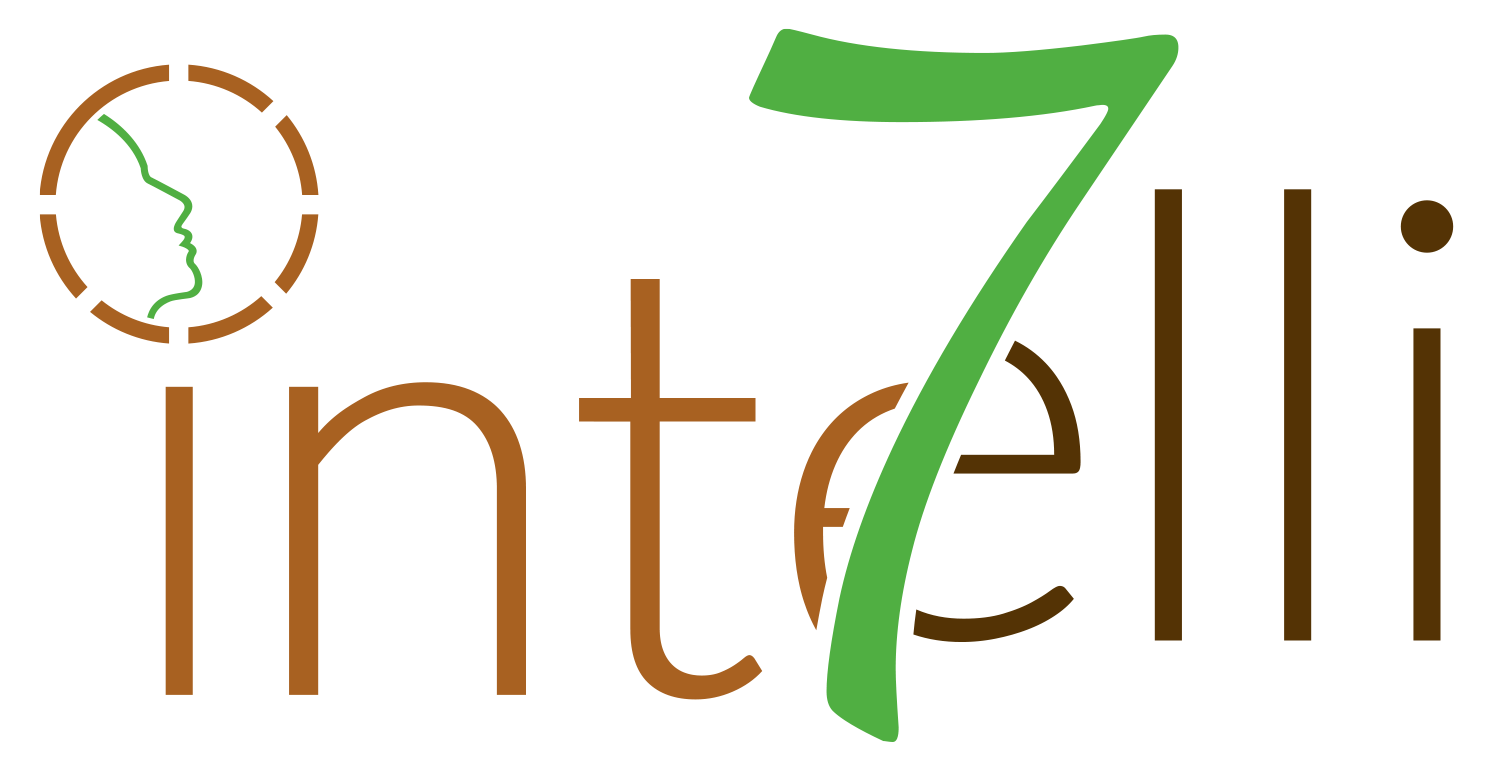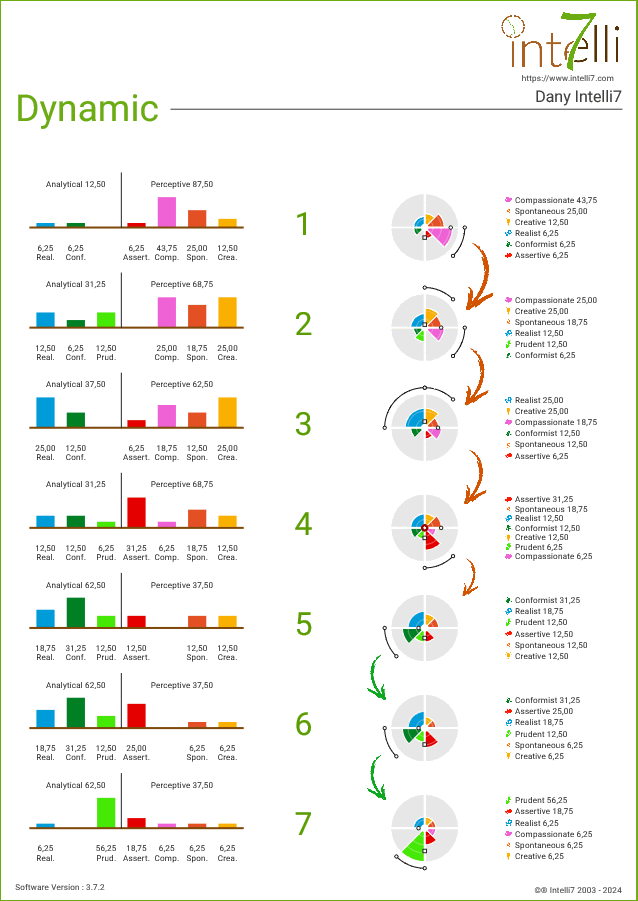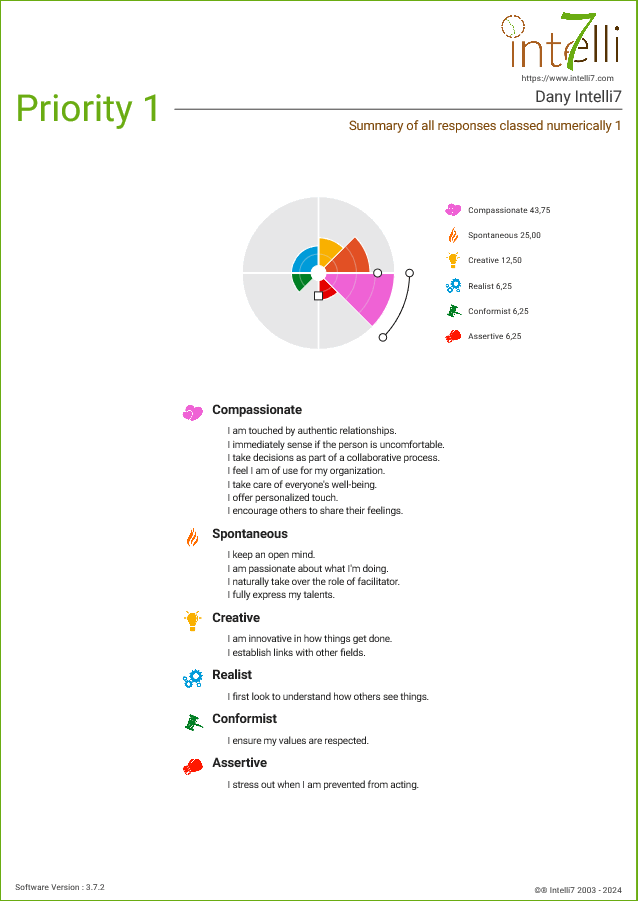

Annabelle FOURNIER
PARIS - France
www.sublimatio.net
Work psychology practitioner
In my individual coaching, I use Intelli7:
- in the inventory of behavioral skills as part of a skills assessment,
- on highlighting a team's wealth through collective mapping,
- To advise on the final choice as part of a recruitment process, both on the pairing and on the individual study in relation to the corporate culture.
I particularly like this tool for the rapid appropriation that customers make of it, for its educational dimension and for the time-saving it provides.
For me, there's no other tool that matches it for the accuracy of its openness to the other, not its non-categorization which allows a much wider field of possibilities, and for its ethics which approach clinical psychology say nothing, do nothing that might harm others.













 My references:
My references: